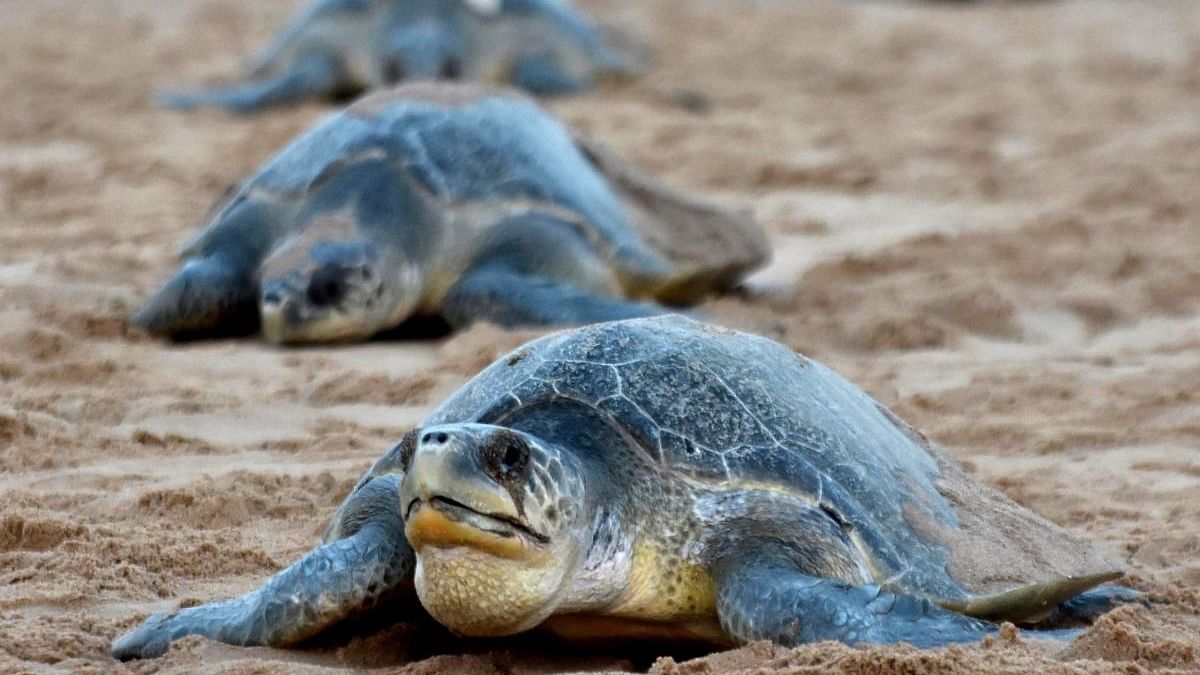
The state government is pushing for a project to build a four-lane road on Kasarakod beach in Honnavar to connect the local port by promising mitigation measures to protect olive ridley turtles that nest on the beach in large numbers.
The move, which has been fiercely opposed by fishermen, has also got experts riled up, as they decried it as "ineffective and dangerous".
The Director of Ports and Member of Karnataka Maritime Board (KMB) has sent a revised proposal to the Karnataka State Coastal Zone Management Authority (KSCZMA) seeking approval for constructing a 2.58 km-long four-lane road with paved shoulder as well as a 5.5 metre-wide service road with 1.5-metre earthen shoulder.
Also Read | Over 6.37 lakh Olive Ridley turtles lay eggs in Odisha's Rushikulya river mouth
The project by Honnavar Port Limited has been opposed by the fishermen who have moved the National Green Tribunal (NGT), alleging various violations of the coastal zone regulation rules.
With the help of experts, fishermen had submitted documents showing that the road's alignment on the beach will permanently damage the olive ridley nesting areas and hit their livelihood by cutting them off from the sea.
Olive ridley turtles are classified as vulnerable by the IUCN.
Following a direction by the NGT, the port authority has approached KSCZMA for clearance and the latest set of documents list mitigation measures.
The company has promised to build barricades around the turtle nesting areas and post four watchers during the breeding season. It has also assured of converting the kaccha road into a cement concrete road and build two underpasses below the highway to provide connectivity to the sea.
The company said a bridge will be over "a small portion of beach which is marked as a turtle nesting area in the CZMP map" to ensure that the highway will not disturb the marine animals.
Marine biologist and Karnataka Biodiversity Board member Prakash Mesta said authorities have come a long way from the days when they insisted that there were no turtle nesting sites.
"Now they are limiting the nesting to a small patch. In the same document, they acknowledge that the nesting is sporadic. Data regarding the pattern of nesting over the years clearly shows that the entire 2.5-km beach where they want to build a road is a nesting site," Mesta said.
Mesta said the idea of building barricades around the nesting area may end up causing more damage.
"Barricades work when we shut down the entire beach, as is done in some places on the eastern coast where mass nesting happens. Setting up such blockades around nesting areas will only disturb the turtles. Moreover, the western coast is known for upwelling and aggressive sea waves where the barricades won't stand a chance," he added.